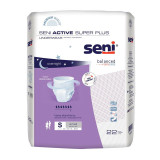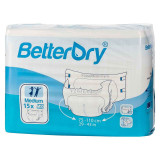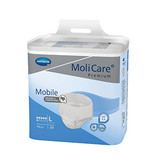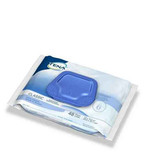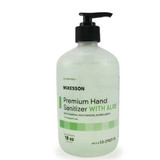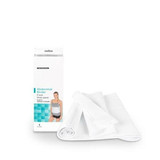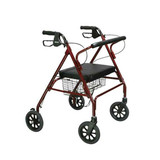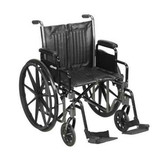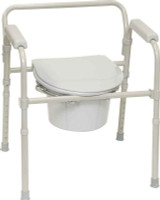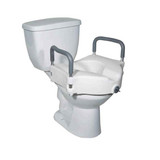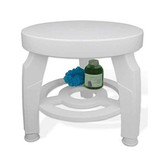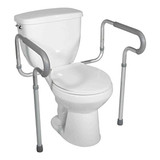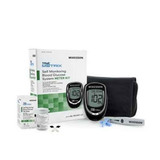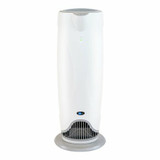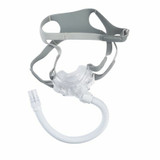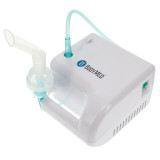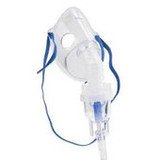
The Caregiver Guide - Providing Efficient Home Care Assistance
The role of a caregiver is a very noble one. And it’s a very challenging one too. According to a 2020 report published by AARP (formerly the American Association of Retired Persons), 53 million adults in the US provided home care assistance to a person with special needs during the preceding 12 months. Almost all of this is unpaid. That’s the noble part.
Now for the challenging part. The report also presents some alarming statistics:
· 26% of caregivers have difficulty coordinating their care responsibilities
· 23% report that their own health has deteriorated
· 61% are also working
· 18% are experiencing high financial strain, 28% have stopped saving, and 23% have taken on more debt.
These are chilling statistics that ram home the point that caregiving is challenging. And we can’t control everything, so this picture is unlikely to change much. One thing we can control, however, is our own efficiency in our caregiver role. That way, hopefully, we can lessen the burden. In this article, we look at various tips and techniques that will save time and, hopefully, reduce the strain.
Organize and Plan
Being efficient means getting more things done in less time. In their Career Guide, job site indeed.com defines it like this, “efficiency involves having knowledge of available resources, understanding how to use them and optimizing your time and resources.”
Prioritize Tasks
According to AARP, the average caregiver spends about 24 hours per week on their home care assistance duties. That adds up to a lot of tasks that need to be done. Start by making a To-Do List so that you have a clear idea of what needs to be done. Then, identify the most critical tasks to ensure you don’t overlook anything vital.
Create a Routine
Establishing a daily routine gives structure, creates habits, and generally just makes things run more smoothly. Set times for waking up, taking meals, administering medication and doing recreational activities. If you care for a person with dementia, a routine provides a sense of stability and reduces confusion. A written schedule will also help other family members and hired caregivers to adhere to the plan.
Keep Medical Information Organized
Keep medical records such as prescriptions and test reports organized in one accessible place, such as a digital folder or a physical binder. This can save time during doctor's appointments and could make a life-or-death difference in emergencies.
Plan for Emergencies
Caregivers are more likely to experience an emergency and should have a well-thought-out emergency plan in place at all times. This plan may include an easily accessible list of emergency contact numbers, a pre-determined route to the nearest hospital and a prepared kit with essential medical supplies. For more detailed information on emergency planning, you can read this guide.
Meal Prep in Advance
Balanced nutrition is an integral part of overall health, and this usually entails home-cooked food. For a caregiver, it would make a lot of sense to prepare food for several days at a time. Most cooked dishes can be kept in a refrigerator for a few days or in the freezer for months. You’ll save a lot of time by eliminating the need to cook daily, and your patient will have access to healthy, ready-to-eat meals even when you’re not around.
Lighten the Load
Use Technology:
In today's world, there’s an app for everything and everyone. Medication management apps can help caregivers set reminders for administering medications, while digital calendars can be used to coordinate appointments and tasks. Most calendars or task management apps can be shared so everything can be synchronized between everyone involved in a patient’s care.
Automate Repetitive Tasks
Everybody hates paperwork, and caregivers are no exception. Sitting at a table pushing a pen or punching a keyboard feel so unproductive, but it must be done. Fortunately, modern technology allows us to automate a lot of administrative tasks like paying bills, renewing subscriptions or scheduling regular orders.
Stock Up with Home Delivery Services
Home delivery isn’t all that new, but since the Covid-19 pandemic, it’s gone to a whole new level. Almost anything can be delivered to your doorstep nowadays. It’s a convenient way to ensure you always have what you need, saving last-minute trips when you run out of something. For instance, you can set up an Autoship order with LL Medico to have all your incontinence supplies, nutritional supplements and over-the-counter medications delivered at regular intervals. Simple, convenient peace of mind.
Use Telemedicine Services
Telemedicine has revolutionized healthcare access, especially for caregivers who may struggle to take their loved ones to in-person medical appointments. With telemedicine services, caregivers can schedule virtual consultations with healthcare professionals, saving time and effort spent traveling. This is particularly useful for routine follow-ups or non-emergency medical concerns.
Stay Strong and Healthy
Caregiving can be a major burden, both physically and mentally. We saw earlier that one in four caregivers has suffered a decline in their own health. To provide good care, a caregiver must also look after themselves. We will touch on a few tips here, but for more information, you can check out this guide.
Keep Fit
Maintaining your strength is essential to coping with the demands of being a caregiver. And we’re not talking about physical strength only. While you must make time for regular exercise, you must also keep mentally and emotionally fit. Bring some mindfulness exercises into your schedule and keep up your hobbies to give you a chance to relax, reduce stress and recharge your energy levels.
Use Respite Care
Caregivers can take their responsibility so seriously that they run a genuine risk of neglecting themselves. Respite care services offer temporary relief for caregivers, allowing them to rest, recharge, or take care of personal errands. Even if it’s only a few hours a week, it enables them to attend to their own needs without feeling that they’re compromising their patient’s care.
Don’t be a Hero
Caregiving has been around for centuries, and a wealth of knowledge and experience is available online and in support groups. Resources include tutorials, discussion forums and support groups where caregivers can draw on the experiences of others, exchange time-saving tips, and find emotional support. Organizations like the Family Caregiver Alliance or the National Alliance for Caregiving are good places to start.
Learn to Say No
As a caregiver, it's very easy to take on too much. It’s important to set boundaries and prioritize your own well-being. Learn to say no to non-essential tasks or additional commitments that may overextend you. Recognize your limits and communicate them assertively. Saying no to non-critical responsibilities not only saves time but also protects against the risk of burnout.
In closing, let’s reflect on the words of poet Maya Angelou, "I have found that among its other benefits, giving liberates the soul of the giver." Remember, you are not merely a caregiver; you are a guardian of hearts, a beacon of hope, and a symbol of unconditional love. Embrace the journey, and let your light shine bright, for you are making a difference in the world one act of kindness at a time. Keep giving, keep loving, and know that your service is a precious gift to those you touch.










